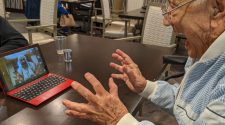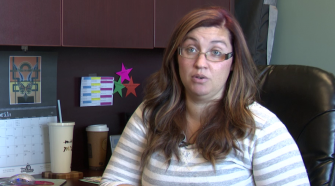Administrative staff at the European Parliament have been tasked with rolling out technology that will “facilitate the remote participation” of MEPs during the prolonged period of remote working brought on as a result of the coronavirus outbreak, documents seen by EURACTIV reveal.
The technology will also allow for the possibility of ‘distance voting,’ European Parliament President David Sassoli confirmed on Thursday (19 March).
The document, which has been signed by the Secretary-General of the European Parliament, Klaus Welle, states that ‘remote participation’ refers to “being able to view and listen to proceedings, ask for the floor and intervene in the meeting.”
“Moreover, members will be able to connect remotely to the platform ideally using their iPad or, with lesser quality, their iPhone,” the document states.
As it stands, the available technology that would allow for such remote participation to function, can support the capacity of 1,000 participants, and also “offers the possibility of remote polling,” the document states.
Following the leak, European Parliament President David Sassoli confirmed that remote voting technologies would be deployed as part of next week’s plenary session, which takes place on Thursday.
“I decided to convene an extraordinary plenary session on Thursday 26 March in order to approve the emergency measures presented by the European Commission,” Sassoli said.
“It will be the first plenary that will use the distance voting system. In the face of this emergency we must use all the means we have available.”
Members of Parliament and administrative staff will also be given tutorials and best practice guidelines on how to use the technology.
The document concludes by describing the technology as ‘pioneering’ and that along this axis, members should “be patient towards any technical or organisational challenges that might arise during the first meetings phasing in this new technology.”
[Edited by Zoran Radosavljevic]

















